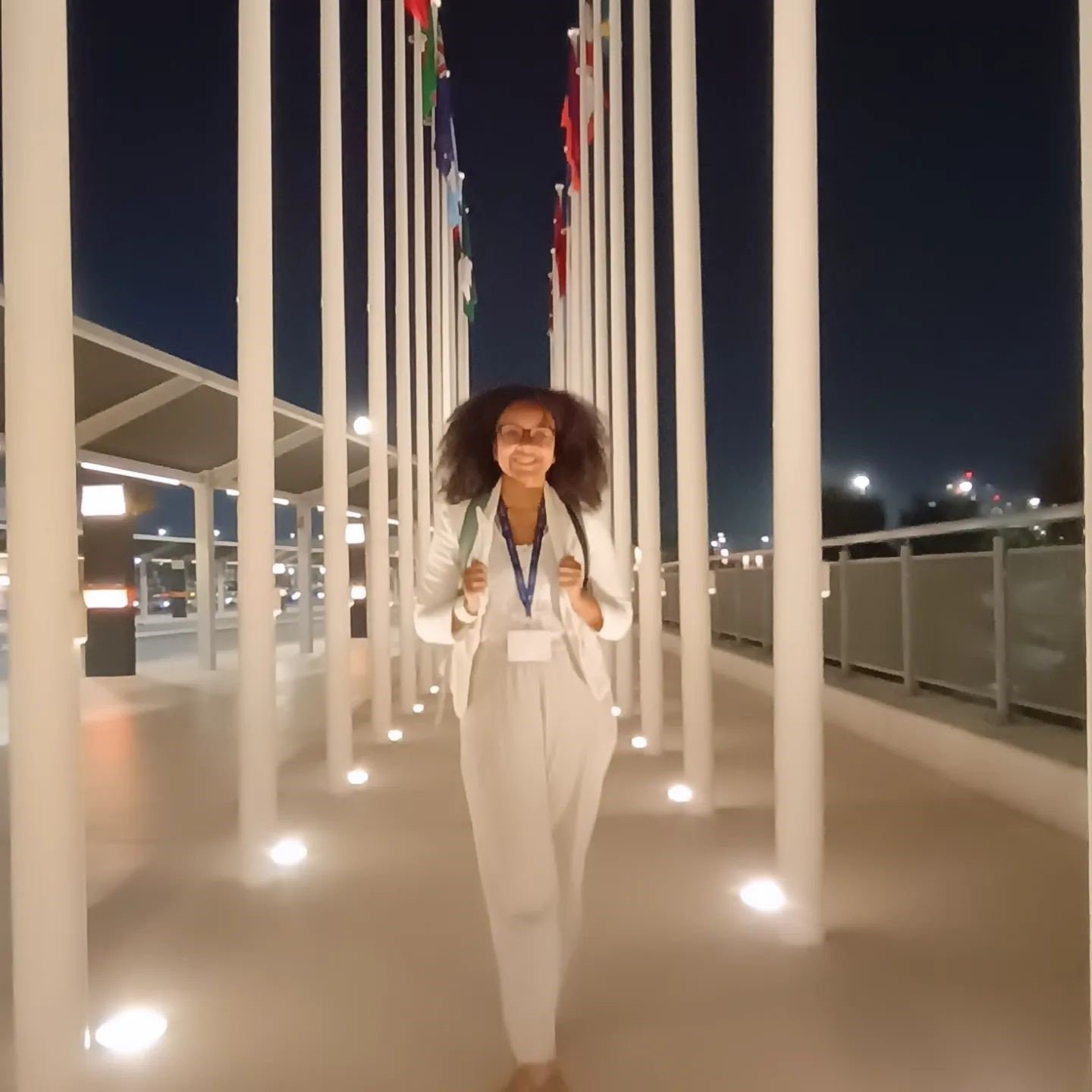Member of Phoenix’s São Paulo Team Takes Part in COP 28 in Dubai
Maíra Silva Focuses on the Problem of Environmental Racism and its Links to Climate Change
"There is no climate justice without fighting environmental racism". This was the flag raised during the 28th United Nations Climate Change Conference (COP 28) by Maíra Rodrigues da Silva, a member of Phoenix’s São Paulo team (Brazil). She is a PhD student in Geology at Unicamp and coordinator of the Fight against Environmental Racism area of the non-governmental organization Instituto de Referência Negra Peregum. Maíra Silva returned from Dubai with some good news, such as the participation of a significant - albeit insufficient - number of representatives of Brazilian civil society and social movements, such as indigenous movements and the black movement. In her assessment, Brazil played a leading role in terms of decarbonization, with a commitment to a 1.5°C reduction through actions such as reducing deforestation, energy, and ecological transition.
She points out that in the general text of COP 28, regarding the reduction in the use of fossil fuels, the word “Afro-descendant” was included, thus making racism an important issue: "This was due to the action of social movements, such as the Brazilian organization Geledés - Instituto da Mulher Negra, which managed to participate more intensely at the negotiating table".
She notes that at the same time as the negotiations between the countries, which resulted in the final text of the COP, there were several external negotiations, that is, other dialogues focused on projects, partnerships, and financing. According to Maíra Silva, in these spaces, many of the negotiating tables focused on decarbonization and reforestation projects, and carbon credits, among other topics. "There were some good things, like institutions and popular segments that made interesting negotiations, but there were also states with very high agribusiness representation," she says.
"I think we are still a long way from this transition process," says Maíra Silva. She says that at the same time as the climate change negotiations, Brazil is holding auctions for mining, oil, and gas agencies, especially in the north of the country, in areas that overlap with traditional black communities (quilombos) and indigenous territories. "At COP 28, we sought to denounce the fact that it is impossible to make an ecological transition without thinking about these issues," she said, adding that Brazilian social movements are already mobilizing to hold the People's Summit during COP 30 to enable greater participation of these voices.


